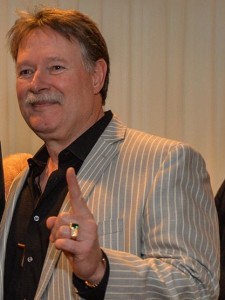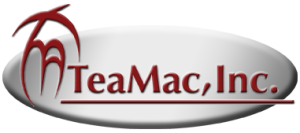
About TeaMac
GUY L MC DONALD, CEO
While majoring in psychology at the University of Maryland in 1973, Mr. Mc Donald started his working career at night in the computer dept. at Goddard Space Flight Center. After leaving college he continued his career in computers for 11 years. His last project was a five-year project developing the software for an overnight online TV metering system at Arbitron Ratings Company. This project put Arbitron ahead of Nielson in the TV ratings market for the first time in Arbitron’s history.
Mr. Mc Donald left the computer industry in 1984 and started his own management, sales and customer service consulting firm. In five short years he had developed a list of clientele consisting of medium to large companies such as Goodyear Tire & Rubber Company. His sales, customer service and management training increased sales at these companies as much as 62% in just six months time. Although he thoroughly enjoyed the challenges offered in this career, he soon tired of the corporate red tape and decided to change careers once again.
In 1988 a friend who knew of Mr. Mc Donald’s computer background asked him if he could figure out a way to process credit cards in a mobile environment, which the friend needed for his business. After much conversation, artists and crafters with their own businesses, Mr. Mc Donald decided to take up the challenge and a new career was born. He immediately recognized that whatever he designed would have to be wireless and battery operated to function in a mobile environment. After less than six months research Mr. Mc Donald had pieced together an analog cell phone and intelligent data interface. The Audiovox phone he chose field-tested the best for transmitting data over the wireless networks, however, it only came as a mobile unit to be installed in a vehicle. This didn’t deter him from using the best equipment. He contracted with a equipment carrying case company in Raleigh, NC specializing in ambulance equipment case manufacturing to manufacture a bag to retro fit the phone and the interface into giving it the appearance of a standard bag phone.
Now the challenge was to find a battery operated credit terminal or piece one together. After much research he found a company called VeriFone that had a battery-operated terminal they had manufactured for the European market place in 1987. He contacted VeriFone and asked if he could purchase the terminals for the US market place. VeriFone saw no reason why not except they didn’t see any use for it in the US. Mr. Mc Donald set his new company up as a Verifone reseller enabling him to purchase the terminal directly from VeriFone at cost. Now he had the final piece of the equipment puzzle. He then had the carrying case manufacturer in Raleigh design a protective soft carrying case to house the phone and the credit card terminal for safe transportation of the entire unit to and from the mobile markets point of sales.
While gathering information from the mobile merchants he found that thousands of the mobile merchants couldn’t get credit card processing merchant status with banks around the country because they didn’t have store- front businesses. After interviewing his friends in banking finding out what the issues with non-storefront businesses were, he decided to take his new business yet a step further. He researched the prior thirty years of the mobile industry he was representing and prepared a slide presentation to present to processing banks in hopes of finding one that would set up merchant accounts for his mobile group. He presented the group as an already formed association that he would allow the banks to process for if they met certain criteria. He also told the banks he would not move the association over to their banks in one move because the bank would have to prove it- self capable of keeping their end of the bargain. Therefore he would transfer them a few each week until the entire association was moved. This allowed him time to place ads in industry magazines to get merchants to join his efforts on their behalf. Two of the three banks he presented the deal to offered to meet each of his criteria and the industry association was started. His company was now able to offer a turnkey wireless system and processing to the mobile industry. Because he was able to negotiate a 1.75% rate for the group it created a win – win situation for him and the industry he represented. Those in the industry that had been able to set up merchant accounts were paying their banks 4.5% to 8%. The savings allowed them to purchase Mr. Mc Donald’s equipment and services and still put money in their pockets. Realizing that the wireless companies knew nothing about credit card processing and the processors knew nothing about wireless, he set up a toll free number for his new group to call his company if they needed any support.
In 1997, Mr. Mc Donald purchased his portfolio from the ISO he had been processing through and started his own ISO, TeaMac Inc., with Paymentech to include ownership of the monthly residual stream income the accounts produced.
During the last 16 years, Mr. Mc Donald has negotiated his own contracts with the largest wireless companies in the industry and has helped diagnose many nationwide problems for both Verizon and AT&T. He continues to help the staff at Paymentech, the third largest processor in the country diagnose wireless problems and instruct them on resolutions. U.S. Wireless Data and Paymentech have approached him to help develop wireless help desks to support their wireless customers.
Mr. Mc Donald has been sought out by many equipment manufactures around the world to help develop their wireless solutions for the future. He has worked with four wireless equipment manufacturing companies to date developing and testing their wireless solutions.
He has been a keynote speaker at the Chicago ETA (Electronic Transaction Association) meeting where he presented his views on how wireless credit card processing was going to change the industry over the next five to ten years and what the industry must do if they want to meet the wireless needs of merchants in the future. Mr. Mc Donald believes that 30% to 50% of all credit card processing in the USA will be done over wireless devices within the next five years.
Mr. Mc Donald has spent his working life searching for a career where he could affect a positive change for the public and make a difference in people’s lives. He has found a home in the credit card processing industry and has made many friends and affected many lives in a positive manner with his industry foresight and selfless sharing of his knowledge with wireless companies as well as competitors.
Mr. Mc Donald has been referred to by his peers in the credit card industry as, “The Wireless Credit Card Processing Expert in the United States if not the World”.
TeaMac, Inc. is a registered ISO of Wells Fargo Bank, N.A., Concord, CA.

Thank you so much! The show went well and credit card sales accounted for 1/6 of the total so it was terrific to have that available. Other crafters asked me how I was able to get set-up – I’m sending them to you!
Cheryl